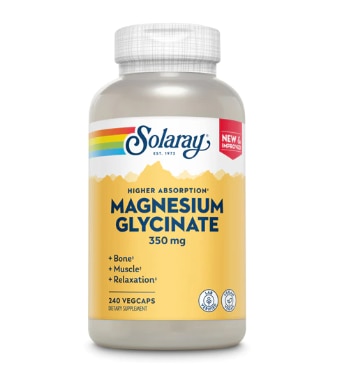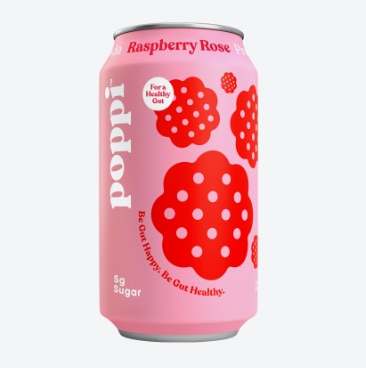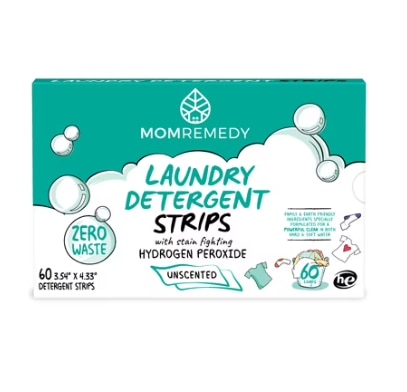What was once an app favored almost exclusively by preteens, TikTok has more than officially seeped into the world of adults—so much so, “Granfluencers” are raking in millions of both followers and dollars, 15 percent of U.S. adults between the ages of 30 and 49 get their news off the social platform, and more and more people of all ages routinely fire up the controversial app for the latest and greatest health tips.
On one hand, this is a solid positive: It demonstrates an increased interest in wellness among the collective, which is always a trend worth following. What’s more, while social sites are notorious for disseminating misinformation, TikTok has proven to be a bedrock of support for Gen Zers wrestling with mental health issues, with some experts insisting that the potential perks of TikTok outweigh its possible harms.
On the other hand, it is precisely the spread of inaccurate info that has, well, misfired—particularly in the realm of wellness. Because if there’s one area where you shouldn’t take everything you hear at face value, it’s most certainly your health.
With this in mind, we’ve rounded up the four most misguided TikTok wellness trends of 2023 — as well as four future fads you may find as we ring in the new year.
TikTok Trends of 2023
Myth #1: Castor oil for vision
Castor oil—yes, the same curative your grandmother may have recommended for dry skin and constipation—reached viral status in 2023 when TikTokers began claiming that it was a panacea for eye issues ranging from cataracts to blurry vision.
Some, such as @mellysandford (whose videos on “holistic” wellness have garnered nearly 30 million views), declare that castor oil has the power to thicken and beautify eyelashes. Best part yet? All you have to do is rub castor oil on your eyelids and underneath your peepers—or so TikTokers contend. And yet another TikToker by the handle of “Busy Belle” proclaimed that applying castor oil to your belly button could ward off bacterial infections and melt tumors.†
Where did such assertions stem from? It remains to be fully understood, but one theory is that influencers caught onto the fact that castor oil is featured in some over-the-counter eye drops.
What the science says
Castor oil has a long, rich history in Eastern medicine, where it was used in Ayurvedic circles as a salve for “Pitta” complications like eczema and psoriasis and to boost circulation and nourish healing in Traditional Chinese Medicine (TCM).†
Contemporary, Western practitioners agree that castor oil boasts several benefits—primarily in terms of mitigating constipation through its inclusion of ricinoleic acid—glaucoma, floaters and other complications of the eye are not among them.†
Indeed, ophthalmologists and other medical experts point out that it’s impossible for castor oil to have an impact on vision problems like glaucoma, which occur inside the eye—not where you might swipe on eyeshadow. Furthermore, castor oil is approved by the FDA only for use as a laxative.
A smarter solution? Supplementing with beta carotene and vitamin A, which have been clinically proven to naturally support vision.†
…and a health fad to look forward to: Strength training
Fitness buffs (including fitfluencers on TikTok) declare that exercise in the new year will place significantly more emphasis on strength training, such as HIIT, yoga sculpt and weight lifting.
Consider this a “trend” that’s positively timeless: Strength training not only enhances flexibility and mobility, but it may also nourish bone health and bolster cognitive agility.
Myth #2: Borax for pain and inflammation
If borax sounds familiar to you, you likely associate with a very specific aisle of Target: the laundry detergent lane. Yet, the chief ingredient in stain removers, dish detergents and toilet bowl cleaners (you heard that right) also went viral in 2023 when TikTokers began touting the chemical as an anti-inflammatory that was capable of not only diminishing pain but also detoxifying the body.
“Viral” it was: The #boraxchallenge received 34 million-plus views and everyone from bodybuilders to whole Facebook groups exclaimed that borax was precisely what they needed to feel like a champion.
What the science says
The fact that Borax as a health remedy has reached viral status doesn’t just stump medical experts—it also has them deeply concerned (if not livid). Yes, borax may be present in some teeth whitening formulas, but consuming or bathing in the chemical compound may provoke a whole litany of health problems, including vomiting, diarrhea, headaches, skin rashes and even anemia.
…and a health fad to look forward to: Sound bathing
Sure, sound bathing has been trending for some time, but in the wake of the stress triggered by the pandemic and its aftermath—mental health complications have skyrocketed in prevalence since March 2020—a growing number of people are seeking out ways to find calm and restore their nervous systems healthfully.
Sound baths fall firmly into this slot. Created with gongs, singing bowls and other instruments, these ultra-soothing experiences are believed to temper anxiety, prompt creativity and even enrich memory.
True, clinical studies on the practice are in their infancy, but a large body of research demonstrates the wonderful benefits of both music and meditation, including a respite from stress and sounder sleep.
Myth #3: Apple cider gummies for weight loss
Diet hacks are nothing new—remember Oprah’s liquid protein diet in the early 90s?—but the ‘Tok took them to new heights (or, rather, lows) in 2023. Chlorophyll water, baby food, 24-hour fasts, the “lemon coffee challenge, the “military diet”—aka, acute caloric restriction—are just four of the diet trends that dominated the social platform in 2023.
One of the silliest of them all? Apple cider gummies for weight loss.
Unlike mixing Borax with water as a replacement for your morning coffee, there’s actually some logic to this novelty: Apple cider vinegar (or ACV, as some refer to it) has been linked to a host of health perks, including improved blood sugar levels and smoother digestion.†
What the science says
Research that has been performed on apple cider vinegar has concentrated only on liquid ACV. Besides, gummies are typically created with ingredients that are antithetical to mindful eating, such as starches, gelatin and sugar—chiefly in the form of corn syrup.
More importantly, some TikTokers have announced that apple cider gummies are so effective, it’s all they need to tide them over until lunchtime. This may lead to disordered eating, particularly in young women who are susceptible to quick fixes and the airbrushed images of “perfection” that dominate social media.
…and a health fad to look forward to: Cold plunges
Cold plunges may seem all the rage, but the practice dates back to 3500 BC when it was used for medicinal purposes. Nonetheless, the rise in cryotherapy—which, in addition to cold plunges, comprises cryobooths, facials, and procedures in dermatology settings—is a swing in the right direction: Utilized correctly, and it may encourage healing from athletic injuries, relieve muscle tension, and boost your mood.
Fortunately, 2024 may see additional interest in cold plunges as well as more innovative ways to engage in the practice: Wellness centers and spas are incorporating them into their packages, more and more gyms will feature them, and homeowners may build cold plunges on their properties—perhaps, fingers crossed, your best friend.
The bottom line
Social media trends have an incredibly short shelf life, but the whiplash-inducing fads that cross TikTok move at an even quicker pace. It’s perfectly understandable why anyone in our fast-paced digital world wouldn’t look to the platform for short videos and bite-sized tips on wellness. Genuine health, however, isn’t found in “easy” solutions, particularly in those—like the vodka-infused Blackout Rage Galloon (or BORG, as college students call it)—that can cause considerably more harm than good.
Rather, long-lasting wellness arrives from wise, consistent choices: Eating smartly, exercising regularly, hydrating frequently, sleeping soundly, destressing daily and prioritizing activities that deliver pleasure. It is that simple and that beautiful, no app required.
†These statements have not been approved by the Food and Drug Administration. These products are not intended to diagnose, treat, cure or prevent disease.




